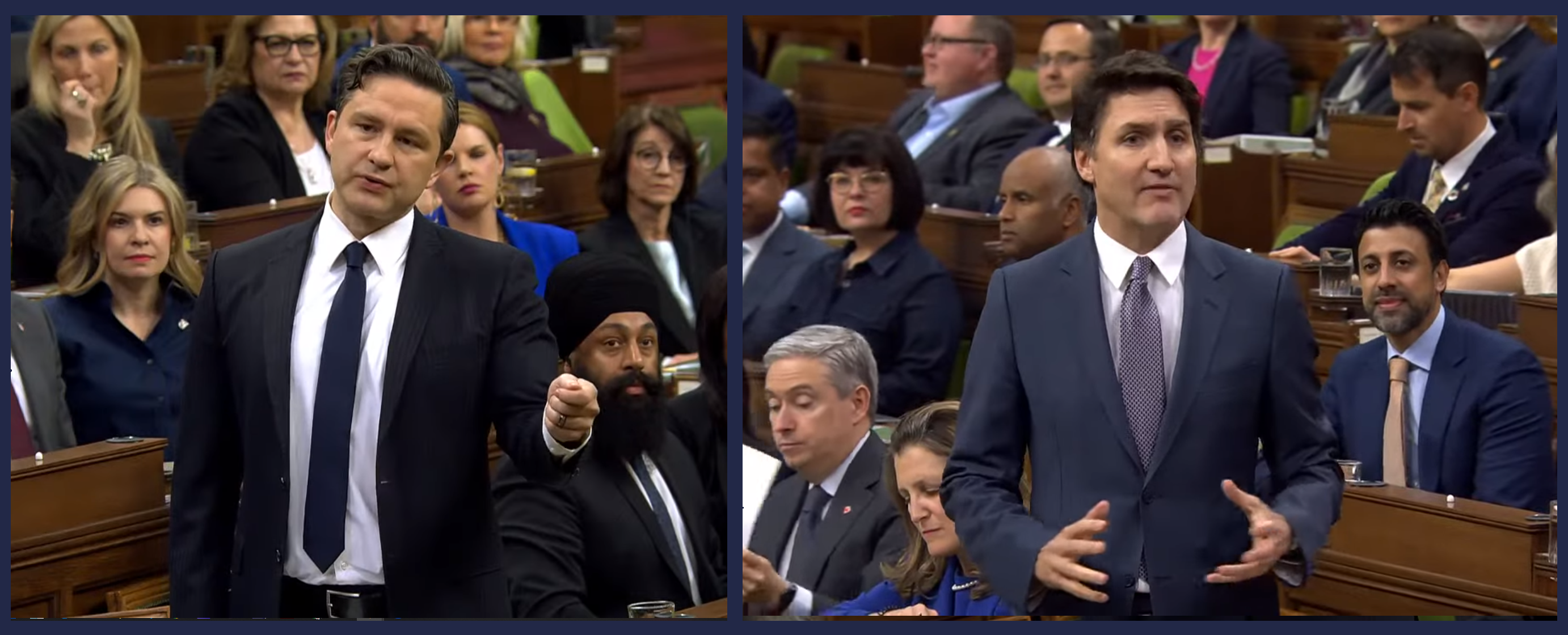On the first day of the fall session in the Canadian Parliament, Prime Minister Justin Trudeau and Conservative leader Pierre Poilievre reignited a fierce debate over the carbon tax. As the economy, inflation, and climate change remain top concerns for Canadians, both leaders wasted no time in confronting each other over the impact and effectiveness of this policy.
Poilievre used his first moments in the House of Commons to criticize the Liberal government’s carbon tax, calling it a “fraud”. In his opening remarks, Poilievre pointed to rising costs, especially for basic necessities like food and home heating.
“After nine years of NDP-Liberal governance, taxes are up, costs are up, and crime is up. And now, they’re planning a 300% increase in the carbon tax to 61 cents per liter,” Poilievre declared. He argued that the carbon tax was disproportionately affecting low- and middle-income families, claiming that it had contributed to a $25 billion shortfall in the Canadian economy.
The Conservative leader repeatedly emphasized his party’s promise to “axe the tax” if elected. “Why not let Canadians choose a common-sense Conservative government that will axe the tax, build homes, fix the budget, and stop the crime?” Poilievre urged.
In response, Prime Minister Justin Trudeau defended his government’s climate strategy, insisting that the carbon tax was a necessary tool to combat climate change and support vulnerable Canadians. Trudeau pointed out that 8 out of 10 Canadians receive more in carbon rebates than they pay in the tax, framing it as a solution that both addresses environmental challenges and helps families.
“Climate change costs money, and the Conservative leader’s ‘do-nothing’ plan will cost Canadians far more in the long run,” Trudeau stated. He highlighted the economic damage caused by natural disasters, such as floods, wildfires, and droughts, arguing that failure to act on climate change would result in even higher costs for Canadians. “When forest fires ravage communities or droughts hit farmers, it costs money to rebuild,” the Prime Minister added.
Trudeau also took aim at Poilievre’s criticism of the government’s support programs, such as dental care and child care, which have been central pillars of the Liberal agenda. He stressed that while the Conservative leader opposed these programs, his government remained committed to helping families in tangible ways, including through climate action.
The exchange between the two leaders underscored the broader philosophical divide between their parties. Poilievre’s remarks centered on affordability and economic recovery, framing the carbon tax as an unnecessary burden during a time of financial strain for many Canadians. He portrayed the Liberals’ policies as reckless and out of touch with everyday concerns, arguing that Canadians need relief from escalating costs rather than increased taxation.
In contrast, Trudeau’s defense focused on long-term solutions to climate change, insisting that Poilievre’s approach would ignore the realities of a warming planet. He emphasized the need to build a sustainable future while also offering immediate financial relief through rebates and social programs.
Both leaders sought to present themselves as the voice of reason for Canadians. Poilievre called Trudeau’s government “high-taxing, high-spending, and out of touch,” while Trudeau painted Poilievre’s platform as one of denial, accusing him of ignoring the costly effects of climate change.
The carbon tax has long been a contentious issue in Canadian politics. Introduced as part of the Liberal government’s climate action plan, the tax is designed to reduce greenhouse gas emissions by putting a price on carbon pollution. Critics have argued that the tax disproportionately affects rural and low-income Canadians who rely on fossil fuels for transportation and heating.
Both leaders have made it clear that the carbon tax will be a central issue in the months to come. The Conservative leader continues to push for its repeal, arguing that it contributes to inflation and poverty, while the Prime Minister remains steadfast in his defense, emphasizing the economic and environmental costs of inaction.
As Parliament resumes, Canadians will watch closely to see how this debate shapes the country’s path forward—balancing affordability, climate action, and economic growth.

